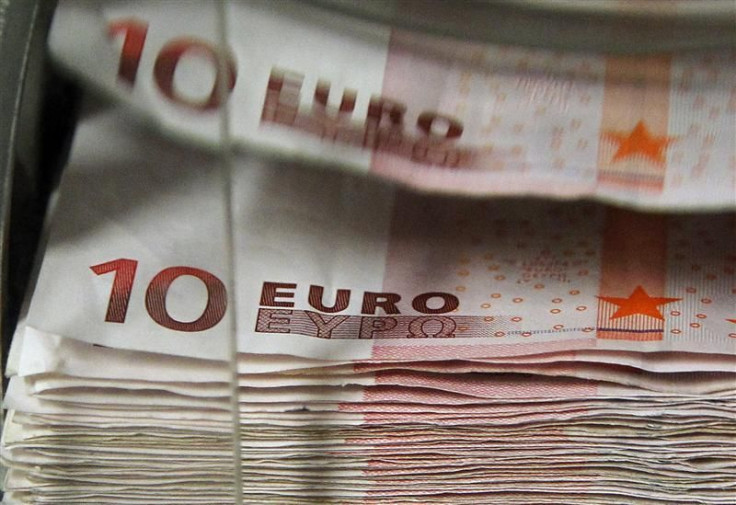Even Chance ECB will Start Printing Money: Reuters Poll

The European Central Bank could soon bow to pressure to print money to prevent a further escalation of the euro zone's debt crisis, with respondents in a Reuters poll giving an even probability the ECB would adopt a policy of quantitative easing.
The poll of 50 bond strategists across Europe and the United States conducted this week gave a median 48 percent probability that the ECB will be forced to conduct outright quantitative easing (QE).
That would be a highly controversial break from its existing policy, where it offsets government bond purchases in its Securities Markets Programme by draining liquidity from the system in separate operations.
Of those who predicted the ECB would start QE, as the Federal Reserve and the Bank of England have done, a majority said it would happen by March 2012.
A slim majority, 25 of 49, of analysts saw an even bigger role for the ECB, expecting it to become the lender of last resort, providing emergency loans for governments.
ECB policymakers have rejected international calls to intervene decisively to shore up the euro zone, but volatility in regional debt markets in recent weeks has made a decision on a bigger role for the monetary authority more pressing.
At this juncture, only the ECB has the power to calm market tension in the short term, while we wait for peripheral governments to approve reforms, key to reviving market confidence, said Thomas Costerg at Standard Chartered.
Contagion spreading beyond peripheral countries to the European core has piled on the pressure for bolder action.
ECB President Mario Draghi said on Friday that the bank was contributing to economic stability while maintaining its independence. He also warned that there would be a huge social and economic impact if the central bank were to lose its credibility.
Italian 10-year yields surged back above 7 percent this week, widely viewed as an unsustainable level, and the premium triple-A countries like France and Austria have to pay over German Bunds hit euro-era highs.
The ECB has reluctantly carried out its bond-buying program since 2010, totaling 187 billion euros so far. But it has shown little sign of shifting into a higher gear even as countries like Italy risk being shut out of commercial markets.
The fear is that Italy would pose a systemic risk to the euro zone given the size of its economy and national debt, the third largest in the world. French banks are the most exposed to its debt, according to Bank for International Settlements data.
NO MORE BAILOUTS
A significant majority, 40 of the 50 economists polled, said they did not expect any other countries in the 17-nation bloc to require a bailout like Ireland, Greece and Portugal.
Market pressures in recent weeks have reached such levels that they forced the resignation of Italian Prime Minister Silvio Berlusconi, who has survived a series of scandals over many years in office.
It seemed likely that the ECB would reward Italy's recent move by increasing the purchases significantly. So far this has not been the case and the result has been increasing contagion, said Anders Moller Lumholtz at Danske Bank.
Currently the markets are in no man's land as investors don't know what to expect from the ECB.
The ECB's hesitation partly comes from a fear that if it took on a bigger role to tackle the crisis, it might undermine its independence from politics and its price stability mandate.
Printing money to buy bonds outright in the secondary market -- the ECB is not allowed to buy directly in auctions -- could push up euro zone inflation, which at 3 percent is already higher than the ECB's 2.0 percent target ceiling.
The idea was to transfer the bank's bond-buying program to the bloc's rescue fund, the European Financial Stability Facility (EFSF). But efforts to bolster the EFSF by next month have been undermined by delays and scant investor interest.
We definitely require a final solution for the debt crisis within the next months, said Jens-Oliver Niklasch at LBBW.
A combination of credible fiscal policy with deeper fiscal integration, a large and unlimited bond buying program of the ECB, and some element of common bonds (euro bonds) could be a possible solution.
(Polling by Somya Gupta and Sarmista Sen, Editing by Ross Finley and Hugh Lawson)
© Copyright Thomson Reuters 2024. All rights reserved.





















